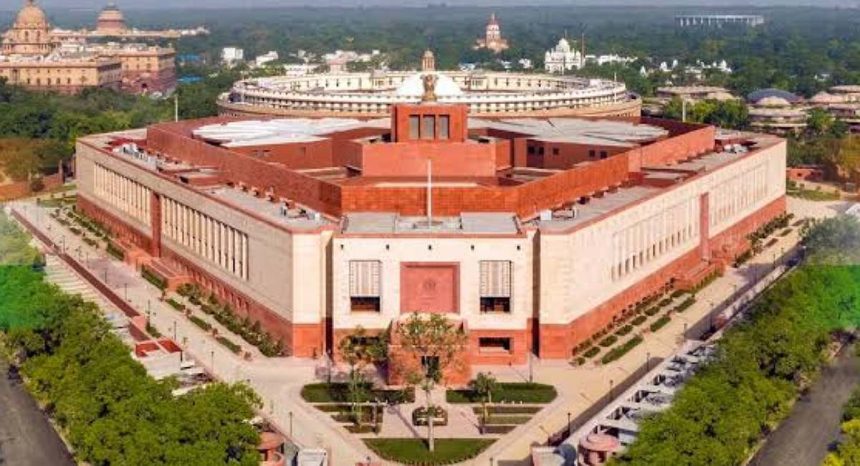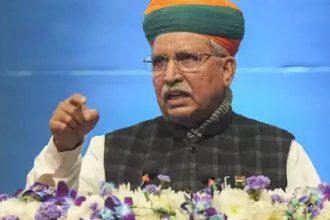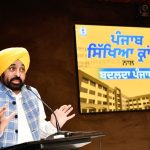India’s parliamentary system is bicameral, consisting of two houses: the Lok Sabha (House of the People) and the Rajya Sabha (Council of States). These two houses collectively form the Central Parliament or Legislative Council. Although the President of India plays a crucial role in the parliamentary system, their position is above the Parliament in certain respects. For instance, any bill passed by both houses requires the President’s assent to become law. According to the Indian Constitution, the Parliament must convene at least twice a year, with no more than six months between sessions.
Lok Sabha: The House of the People
The Lok Sabha is the lower house of Parliament, often referred to as the House of the People. It comprises representatives directly elected by the citizens of India. Currently, the Lok Sabha can have a maximum of 545 members. Out of these, 525 are elected from various states, while the remaining 20 represent the Union Territories.
The Lok Sabha has a five-year term, and its members are known as Members of Parliament (MPs). Indian citizens who are 18 years or older are eligible to vote in these elections. To qualify as a candidate for the Lok Sabha, a person must meet the following criteria:
- Be a citizen of India
- Be listed in the electoral roll
- Be at least 25 years of age
- Possess other qualifications as prescribed by Parliament
The Speaker and Deputy Speaker of the Lok Sabha are elected from among its members. The Speaker presides over the Lok Sabha sessions and also has the authority to cast a deciding vote in case of a tie. The Speaker also presides over joint sessions of both the Lok Sabha and Rajya Sabha. However, neither the Speaker nor the Deputy Speaker can preside over discussions concerning their own removal from office.
Rajya Sabha: The Council of States
The Rajya Sabha is the upper house of Parliament, also known as the Council of States. Unlike the Lok Sabha, the Rajya Sabha is a permanent body and cannot be dissolved. It is composed of a maximum of 250 members, 12 of whom are nominated by the President of India for their expertise in specific fields such as literature, science, art, and social service.
The Rajya Sabha serves as a forum for dignitaries and experienced statesmen. One-third of its members retire every two years, and the term of each member is six years. To be eligible for membership in the Rajya Sabha, a person must:
- Be a citizen of India
- Be at least 30 years old
- Have the right to vote as per Parliament’s requirements
- Meet other qualifications as prescribed by law
The Vice President of India serves as the ex-officio Chairman of the Rajya Sabha but is not a member of the house. Unlike in the Lok Sabha, money bills cannot originate in the Rajya Sabha. However, the Rajya Sabha can suggest amendments to such bills, which must be returned to the Lok Sabha within 14 days.
Legislative Powers and Responsibilities
Both houses of Parliament play critical roles in India’s legislative process. While the Lok Sabha is more powerful due to its direct electoral mandate, the Rajya Sabha holds significant responsibilities, especially concerning the amendment of the Constitution and the passage of non-money bills.
The powers of Parliament are extensive and include the ability to:
- Amend the Constitution
- Pass laws on subjects in the Union and Concurrent Lists
- Oversee economic and financial matters
- Impeach the President
- Remove judges from the Supreme Court and High Courts
The Lok Sabha and Rajya Sabha together form the backbone of India’s democratic system, ensuring a balanced and comprehensive legislative process. While the Lok Sabha reflects the voice of the people, the Rajya Sabha offers a platform for seasoned debate and expert opinion, making India’s Parliament a robust and dynamic institution.










